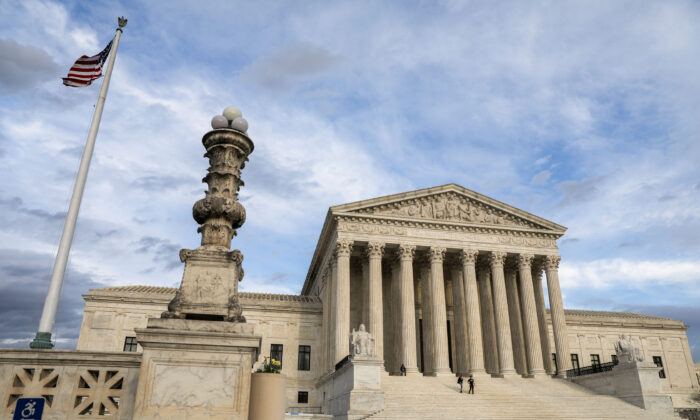Unhealthy Habits Increased in April Due to CCP Virus Pandemic
The Supreme Court has reinstated a $4.3-billion award of punitive damages against Sudan for providing material support and safe haven to the Islamic terrorist group al-Qaeda that was responsible for deadly bombings of U.S. embassies in East Africa in the late 1990s.
The decision is a victory for the Trump administration, which argued on behalf of the victims of terrorism as a so-called friend of the court.
In the 8-0 decision in Opati v. Republic of Sudan that came May 18, the high court reversed the D.C. Circuit Court of Appeals that threw out the punitive damages. A separate $5.9 billion in non-punitive damages was not at issue in this case. Although Sudan did not put in a legal defense to those claims and lost by default, the country’s government did hire lawyers to contest the punitive damages claim.
The appeals court found that the Foreign Sovereign Immunities Act (FSIA) precluded damages for events that took place before the statute was amended in 2008, but the Supreme Court rejected that conclusion.
The new opinion was written by Justice Neil Gorsuch. Justice Brett Kavanaugh, who used to sit on the appeals court, did not participate in the case. Oral arguments were heard Feb. 24.
The Supreme Court did not accept Sudan’s contention that Congress had “to provide a super-clear statement when it wishes to authorize” punitive damages “because retroactive damages of the punitive variety raise special constitutional concerns,” Gorsuch wrote.
“Congress was as clear as it could have been when it authorized plaintiffs to seek and win punitive damages for past conduct,” the justice wrote for the court.
The case was considered unusual because the plaintiffs sought compensation not just for the 12 Americans killed and injured in al-Qaida’s 1998 deadly truck bombings of U.S. embassies in Dar es Salaam, Tanzania, and Nairobi, Kenya, but also for non-U.S. citizen employees who worked for those diplomatic missions. The attacks left more than 200 people dead and thousands injured. About 600 people signed on as plaintiffs to the lawsuit.
Under dictator Omar al-Bashir, who was the country’s president from June 1989 until he was ousted in an April 2019 coup d’état, Sudan harbored and provided sanctuary to Islamic terrorist groups. Al-Qaeda leader Osama bin Laden is thought to have lived in Sudan in the 1990s. A provisional civilian-military government is in power in Khartoum and democratic elections are expected to take place in 2021.
After the revolutionary changes that have taken place in the country, Sudan now wants to normalize relations with the United States so it can re-enter the international community and gain access to international capital. In his final days in office, then-President Barack Obama began lifting U.S. sanctions against Sudan. His successor, President Donald Trump, has also rescinded U.S. sanctions against that country.
Focus News: Supreme Court Unanimously Revives Punitive Damages Award Against Sudan for Aiding Terrorists
China’s Commerce Leader Admits Wet Markets Not ‘Up to Standard’
